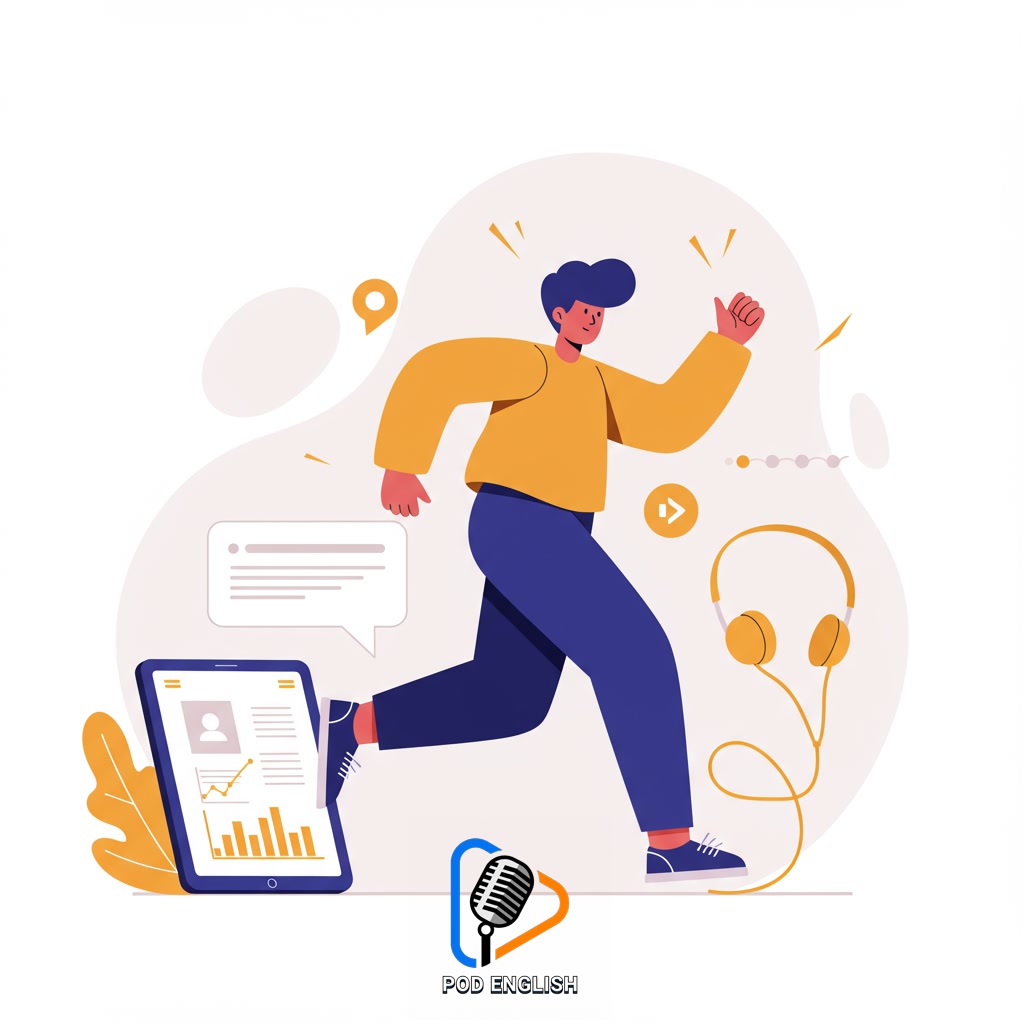Learn English
Exercise Boosts English Learning Motivation

Research suggests that engaging in physical activity can significantly enhance motivation for learning English. Regular exercise may improve cognitive functions and mood, creating a more conducive environment for language acquisition. Individuals who exercise might find themselves more driven and focused when tackling the challenges of learning English. Consequently, incorporating physical activity could be a practical approach to sustain enthusiasm in learning English.
Table of Contents
- Section 1: The Interplay of Exercise and English Learning Motivation
- Section 2: Neuroscientific Basis: How Exercise Enhances Brain Function for Learning
- Section 3: Boosting Motivation: Specific Ways Exercise Helps English Learners
- Section 4: Practical Strategies: Combining Exercise and Your English Study
- Section 5: Conclusion: Harnessing Exercise for Enhanced English Learning Drive
Section 1: The Interplay of Exercise and English Learning Motivation
The relationship between physical activity and the motivation to learn English is a fascinating area. Engaging in regular exercise doesn’t just benefit your physical health; it also has a profound impact on your cognitive functions and emotional well-being, which are crucial for effective language acquisition. When you exercise, your brain receives increased blood flow and releases endorphins, leading to improved focus, better memory retention, and a more positive mood. This enhanced mental state makes the often challenging process of learning English feel less daunting and more manageable. You might find yourself more enthusiastic about tackling new vocabulary, grammar rules, or practice conversations because your brain is more receptive and you feel less stressed or fatigued. Essentially, a healthy body supports a healthy, motivated mind ready to embrace the complexities of a new language.

Section 2: Neuroscientific Basis: How Exercise Enhances Brain Function for Learning
Exercise has a profound impact on your brain’s health and function. Scientifically, physical activity boosts blood flow to the brain, ensuring it gets vital oxygen and nutrients. Crucially, exercise stimulates the production of key neurochemicals. One important one is BDNF, often called “brain fertilizer,” which helps brain cells grow and connect. It also increases levels of neurotransmitters like dopamine and serotonin, which are linked to improved mood, focus, and motivation – all essential for tackling complex tasks like learning English. Furthermore, regular physical activity encourages the creation of new brain cells and strengthens the connections between existing ones. This process, known as neuroplasticity, makes your brain more adaptable and efficient at processing and remembering new information, directly supporting your ability to acquire and retain English vocabulary and grammar.

Section 3: Boosting Motivation: Specific Ways Exercise Helps English Learners
Building on the idea of increased blood flow and nutrients to the brain, exercise specifically aids motivation for learning English in several ways. Physical activity is known to release endorphins, natural mood lifters that reduce stress and anxiety – common barriers to language learning. A positive mood makes tackling difficult grammar or new vocabulary feel less daunting and more enjoyable. Furthermore, improved cognitive functions like focus, memory, and attention, enhanced by regular exercise, make the learning process more efficient. When you can concentrate better and retain information more easily, you experience more success, which directly fuels your motivation to continue learning and progressing in English.

Section 4: Practical Strategies: Combining Exercise and Your English Study
To effectively combine exercise with your English learning journey, consider integrating language practice into your fitness routine. For instance, listen to English podcasts or audiobooks while jogging or walking. Use breaks during strength training or yoga sessions to quickly review vocabulary flashcards on your phone. Engaging your mind with English immediately after physical activity, when blood flow to the brain is increased and you may feel more alert, can enhance retention. Alternatively, reward yourself with dedicated English study time after completing a workout, using the positive energy boost to fuel your focus. Finding simple, consistent ways to link physical activity and language study will reinforce both habits and make the process more sustainable and enjoyable.

Section 5: Conclusion: Harnessing Exercise for Enhanced English Learning Drive
Building on the idea of integrating exercise and learning, we conclude that physical activity serves as a valuable catalyst for enhancing your English learning drive. By consistently engaging in exercise, you not only improve physical health but also cultivate a mental state more conducive to focus and motivation. This increased energy and improved cognitive function directly support the dedication required for language acquisition. Therefore, embracing regular exercise isn’t just about fitness; it’s a practical, empowering strategy to maintain enthusiasm, overcome challenges, and ultimately achieve your English learning goals with greater vigor and persistence.














